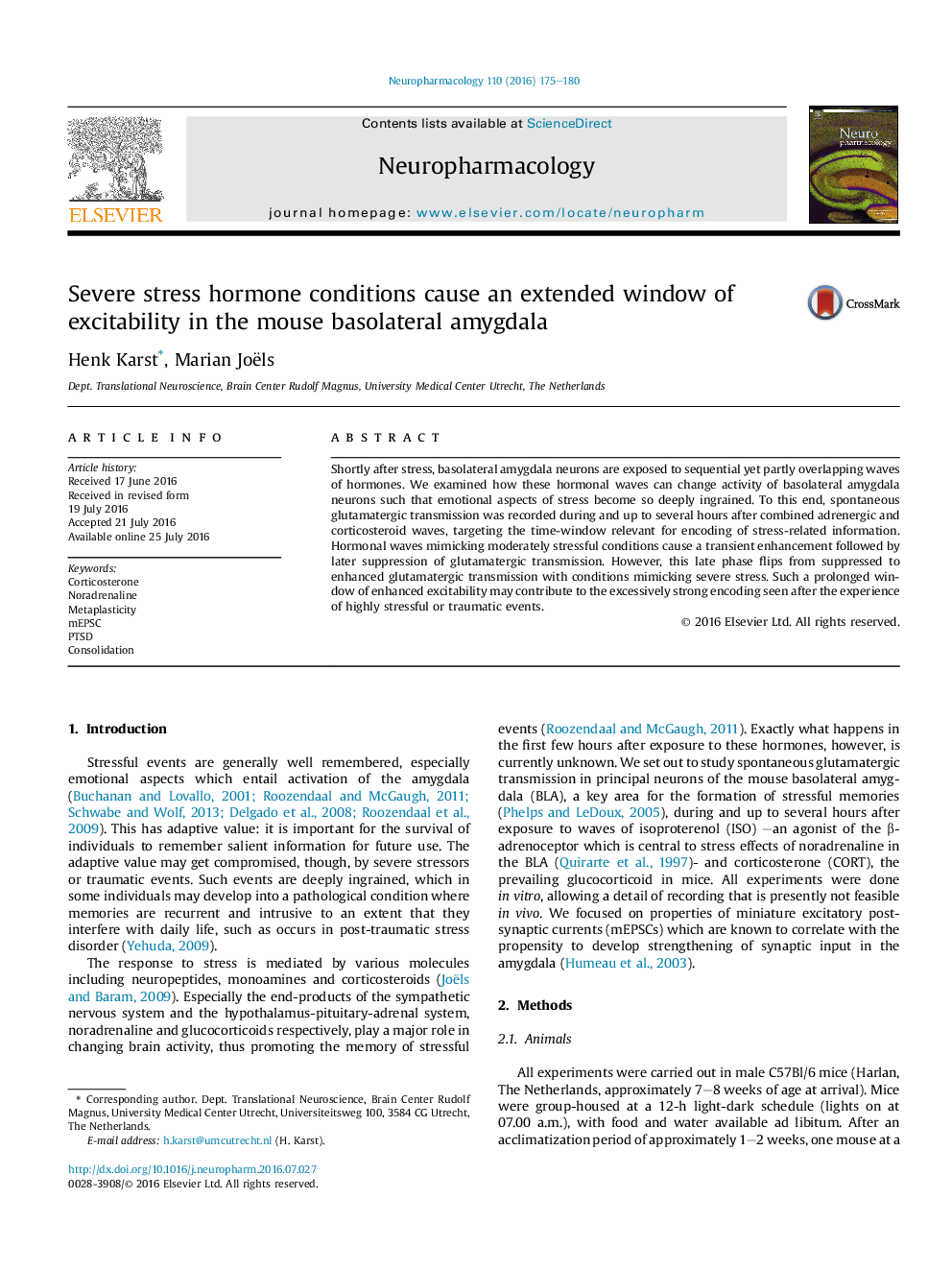| کد مقاله | کد نشریه | سال انتشار | مقاله انگلیسی | نسخه تمام متن |
|---|---|---|---|---|
| 5549219 | 1402859 | 2016 | 6 صفحه PDF | دانلود رایگان |
- Overlapping waves of stress hormones affect neuronal excitability in a complex manner.
- Waves of moderate concentrations of ISO and CORT cause a prolonged suppression.
- With increasing concentrations the window of enhanced excitability broadens.
- Very high doses of hormones may contribute to strong encoding of emotional events.
Shortly after stress, basolateral amygdala neurons are exposed to sequential yet partly overlapping waves of hormones. We examined how these hormonal waves can change activity of basolateral amygdala neurons such that emotional aspects of stress become so deeply ingrained. To this end, spontaneous glutamatergic transmission was recorded during and up to several hours after combined adrenergic and corticosteroid waves, targeting the time-window relevant for encoding of stress-related information. Hormonal waves mimicking moderately stressful conditions cause a transient enhancement followed by later suppression of glutamatergic transmission. However, this late phase flips from suppressed to enhanced glutamatergic transmission with conditions mimicking severe stress. Such a prolonged window of enhanced excitability may contribute to the excessively strong encoding seen after the experience of highly stressful or traumatic events.
Journal: Neuropharmacology - Volume 110, Part A, November 2016, Pages 175-180
